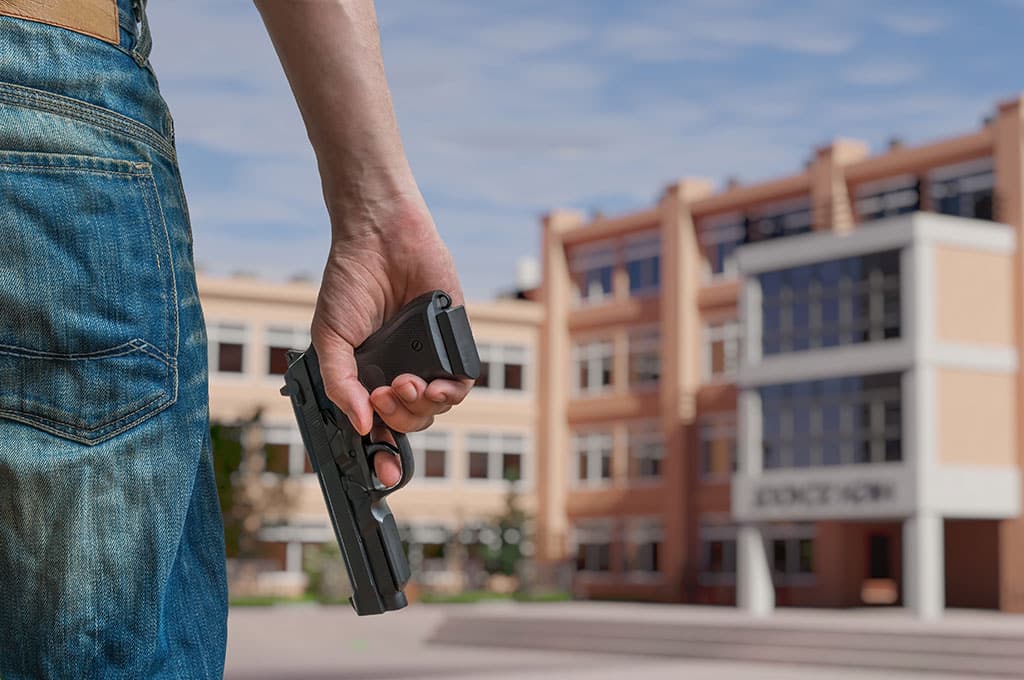If it seems like more and more security guards are getting injured by gunfire these days, you’re not alone. Security guards at hospitals, working at entertainment lounges, and patrolling parking lots are being shot and in some cases killed in 2023.
That’s a problem, not only for security firms that are worried about liability issues when their guards get injured, but also for firms that want to attract new hires to a potentially dangerous job. But how should security firms deal with shootings, which can be potentially deadly and very difficult to predict? Let’s go over some important best practices to keep guards safe in any situation where being exposed to gunfire is a possibility.
Encourage Frequent and Consistent Communication
Communication isn’t just important for security guards out on patrol. It can help minimize many different kinds of risks when guards use the latest apps and communication devices to constantly stay in contact. Simply warning other guards of a suspicious person nearby could be enough to help avoid a dangerous situation or spot a weapon before it’s used.
When frequent communication becomes a habit, it also provides an additional layer of response when the worst happens. Confirming gunfire and reporting related injuries ASAP can help save lives.
Look for Jobs with Healthy Access Control
Part of the responsibilities of a security firm is to help your guards stay safe and keep them away from situations that are too risky or uncontrolled. Consider prioritizing clients that already offer some kind of access control option. In many cases, this will be metal detectors and scanners at venues that prevent anyone from entering with a firearm. If someone can’t bring a gun into the place the guard is in charge of, everyone is safer… including the guards.
Other types of access control can also keep guards safe. That includes dedicated security rooms and kiosks that help keep guards separate from people who might want to do them harm (and provide obstacles to use for cover). These measures are becoming more common, but you can help ensure your guard’s safety by focusing on clients that offer them.
Train Guards to Deal with Confrontations
Security guards are expected to deal with unpleasant situations. But that carries a lot of risk when other people may be armed, including with concealed firearms. Some shootings guards don’t have any control over – like the drive-by shooting we mentioned above. And in another example, a shooter appeared to have arrived looking for violence, in which case security guards can do very little.
But for other cases, confrontations don’t have to end in gunfire, even if both parties are armed. Security guards trained in taking control of a situation and carefully de-escalating the threat are more likely to avoid violence as a result. If the threat of gun violence is rising, providing additional threat training for guards can be an invaluable investment.
Make Body Armor Available for Any Guard
Bulletproof vests are, of course, a very direct way of dealing with the risk of gunfire injuries and can often save lives when worn correctly. It’s common for security firms to invest in bulletproof vests for certain types of security jobs where risks are particularly high.
However, if you’re worried about a rise in more randomized gun violence, then an option is to buy a suite of protective vests and make them available for all guards that want to use them. There are a variety of options available today: You can find covert bulletproof vests online for around $300, but most firms can save a lot of money by looking around locally for discounted Kevlar vests and similar options. Your guards will appreciate the option, and it’s clear evidence that your business is working to mitigate threats.
Build Rapport with Clients
When possible, security guards should also be used to frequent conversation with clients, including employees and supervisors. These are the people most likely to know if there’s a disgruntled ex-employee or someone who seems mentally unstable hanging around.
Review Your Liability Insurance
Your firm should also be aware of how an injured security guard will affect its liability insurance and similar factors. Will the firm be required to pay for medical costs? Do guards have grounds to sue, and will liability insurance cover those kinds of lawsuits? General insurance designed with security firms in mind can help you cover your bases and stay prepared for any legal costs following a shooting.
Conclusion
Security guard injuries from shootings may look like they’re on the rise, but there’s still a lot you can do to keep your guards safe. Help put them in more protected positions, emphasize the importance of regular communication, and if their jobs seem hazardous, offer bulletproof vests for any that may want them.
Finally, remember that it’s still much more common for a security guard to be the shooter in an incident rather than the victim. Always practice safe firearm discipline and enforce regular training for any guards that have their license. Focus on methods to de-escalate situations and emphasize that any firearm use can carry lots of risks – and big liability headaches.






